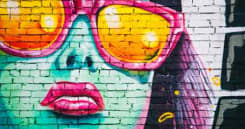Effective recovery often involves the creation of a personalized treatment plan. Overcoming the use of drugs and alcohol is a personal journey, and embracing a variety of therapeutic outlets is necessary for a healthy, fulfilling, sober life. Art and music therapy are two complementary therapies that have proven their effectiveness in many rehab centers in Hawaii.
Still, many may have hesitations about engaging in these treatment interventions. Utilizing art and music during an individual’s recovery journey can be an extraordinarily effective way to personalize a treatment plan. This is because these outlets offer opportunities for individuals to safely process and express challenging thoughts and emotions throughout their recovery journey.
Personalizing Your Recovery
Exploring art therapy and music therapy as a part of a recovery program can be transformational. However, this does not mean that everyone working to achieve sobriety will utilize these therapies in the same way, nor will they produce the same results for every person.
The effective use of art and music therapy will embrace each person’s individual needs. Therefore, when approaching these therapeutic modalities, an individual must be ready to adjust them to fit their personal needs and goals for a lasting impact on sobriety.

Recovery is an ongoing journey, and finding your outlet for continued care is crucial for maintaining sobriety. Learn more by calling (866) 390-5070.
More infoEmbracing Art Therapy
Art therapy is a malleable approach to recovery where an individual can engage with various forms of art in a safe space to navigate recovery challenges and difficult emotions. For some, this can manifest as drawing in a sketchbook with pencil and paper. Others may embrace painting, sculpting, modeling, and other artistic outlets. Embracing art therapy begins by finding the means of expression that best fits an individual’s personal and spiritual needs.
An individual can also utilize their own personal skills and interests in conjunction with art therapy to create unique artistic outlets. For example, individuals who enjoy woodworking can learn how to approach woodworking in a therapeutic way. Likewise, individuals who prefer to use digital mediums or engage in media editing can learn how to express themselves through the creative outlets they already enjoy.
It is important to understand that utilizing art therapy is not the same as taking an art class. Where art classes may be based on obtaining or refining particular skills, art therapy does not concern itself with the skills or techniques involved. Rather, it focuses on the emotional welfare of the participants. This creates a safe space for those who are unable to express themselves otherwise due to fear of judgment or criticism or having low self-esteem.
Art therapy is intended to help an individual process difficult emotions. For some, this can be giving fears or anxieties a tangible, physical form. This can help to expel these distressing emotions from the inside, which can alleviate a person’s emotional and spiritual weight.
Others may use art to better express feelings of depression or grief. Creating a way to communicate feelings and give form to complex notions is instrumental in recovery, both in processing urges and cravings and overcoming any emotional challenges along the way.
Using Music Therapy Effectively
Music therapy is just as personal a therapeutic outlet in recovery. For some, this manifests as creating music or learning to play an instrument. However, others may utilize music for other purposes.
An individual’s experiences with music therapy will depend on the goals that they set for themself. Using music from earlier in life or music that evokes a certain memory can be incredibly beneficial for recovery. This is because doing so can surface feelings of peace or bring back memories of a time before addiction.
Others may use calm, serene soundscapes to create a comfortable atmosphere to process their thoughts and feelings. Having a particular melody to focus on can give the mind direction, focus, and motivation. As a result, music can mitigate the effects of anxiety or panic, help process urges and cravings, and even create a more comfortable atmosphere to detach from daily stresses.
Music therapy can also create a safe way to express any range of emotions. Feelings of anger and confusion throughout the recovery process are normal. However, individuals must have a safe space to process these emotions. Using music to process these feelings can be effective in properly acknowledging and expelling these emotions.

Using art therapy for depression may sound like it’s not the most professional approach to treatment but it’s become more helpful than you might imagine.
More infoEmbracing Art and Music Therapies
Art and music therapy are only as effective as a person is ready to make them. Being willing to challenge any barriers and express a degree of vulnerability is necessary to make the most of these proven therapeutic modalities. An individual may not find immediate results, as is common with trying any kind of new therapy. However, as they learn to personalize and use art and music on a daily basis, they can be an instrumental part of a sustained, sober life.
Art and music are incredibly transformative therapeutic modalities that can be personalized to your needs and goals. We at Hawaii Island Recovery champion the opportunity to personally address and form your recovery plan based on your own needs throughout any stage of the recovery process. By blending our proven therapeutic modalities and adjusting your program to best resonate with you, we can create a truly transformative experience. Our comprehensive, effective treatment programs in Hawaii can help you explore art and music in a supportive community of peers and professionals. For more information on the benefits of our Hawaii drug treatment programs, or if you have any questions or concerns about how to begin your sober journey, call (866) 390-5070.
 Hawaii Island Recovery
Hawaii Island Recovery 










